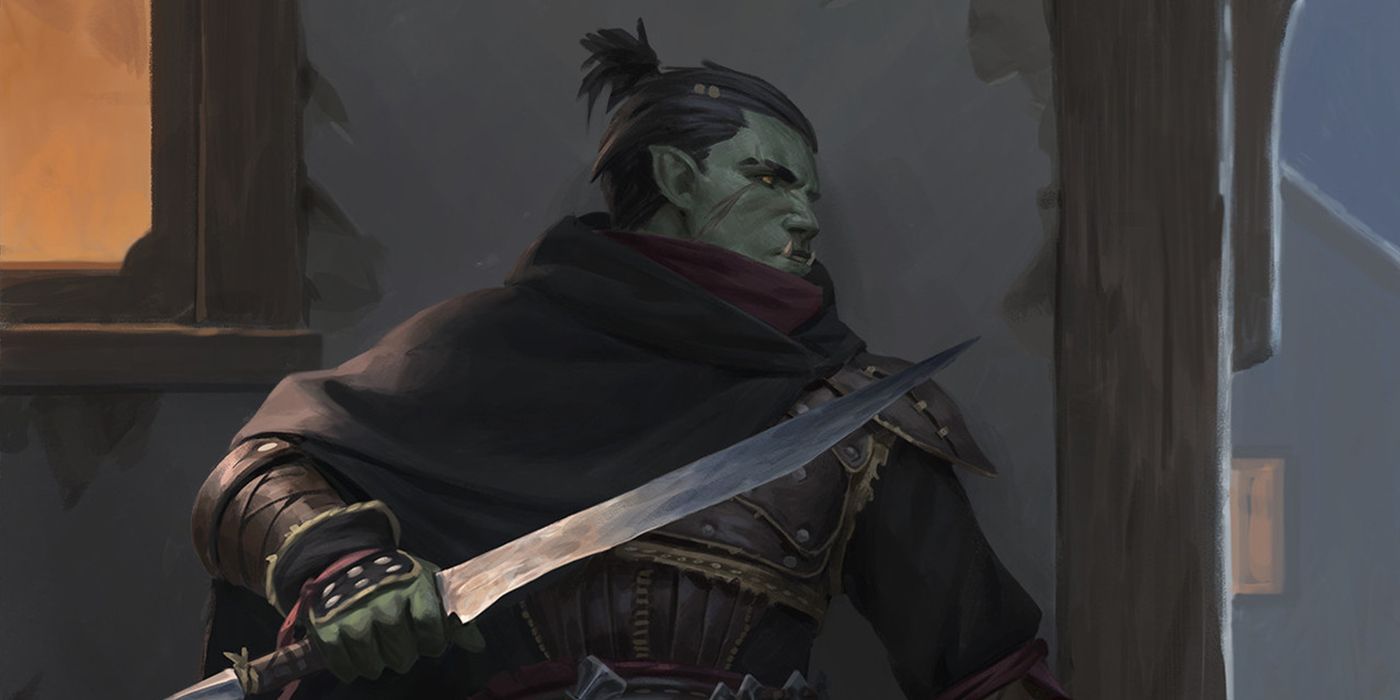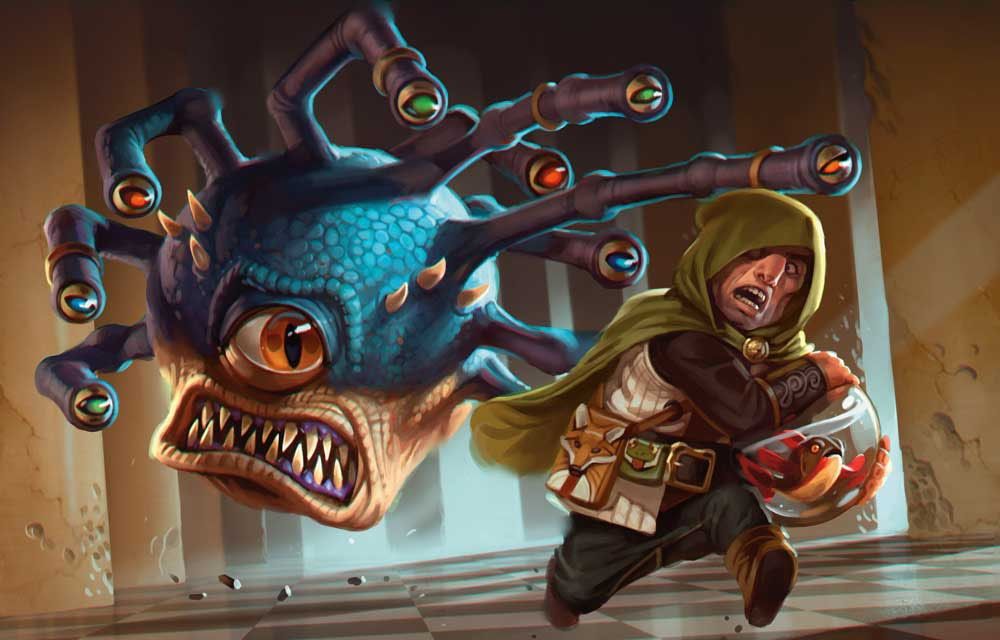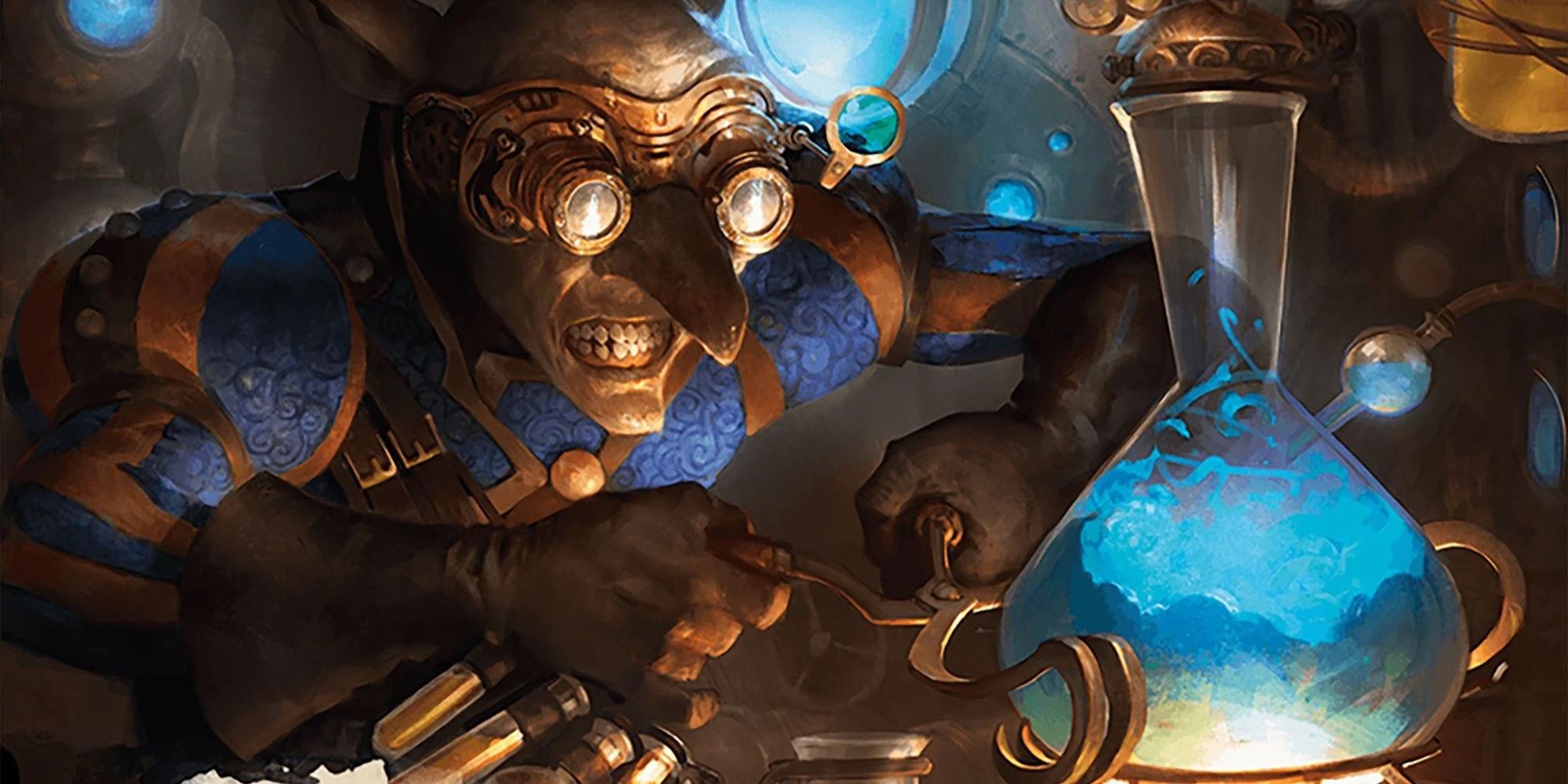D&D Without B&E How To Stop Players From Stealing Everything
D&D Without B&E: How To Stop Players From Stealing Everything
Contents
When Dungeons & Dragons players are stealing too often for their own good, these methods can be used to help curb their insatiable lust for thievery.
You Are Reading :[thien_display_title]

Dungeons & Dragons is a game where players often seem to have a predilection to a thievery mindset, and it’s not very hard to see why. Simply by virtue of its nature as a TTRPG, the options left open to people who play a game like D&D are endless, and with that freedom, naturally, comes a desire to abuse certain systems. If players can do something, like stealing objects from NPCs’ homes, why shouldn’t they?
This idea seems to be especially prevalent in newer D&D players who have never encountered such an unobstructed world before save for in video games like The Elder Scrolls V: Skyrim, in which this kind of behavior is the norm. However, it is important to remember that more experienced players are not immune to the siren’s call of larceny either.
It is a hard task for a Dungeon Master to completely eliminate this desire to abuse the game world from their tables, but it is not, by any means, impossible. There are several strategies for D&D that DMs can keep in the back of their minds when playing that can disincentivize stealing in even the most Chaotic Neutral players. Many of these approaches can call upon the DM to do even more work designing their game, but it all becomes worth it the moment the party doesn’t get run out of town again or gets captured by guards and thrown in jail.
Avoid Stealing In D&D By Giving Players Real-World Consequences

Perhaps the most obvious measure for curtailing stealing in Dungeons & Dragons is to incorporate the type of consequences that prevent the players from committing such acts in real life into the game world. A player’s familiarity with these kinds of punishments in the real world will likely quickly communicate that while the alternative world that their character inhabits is a fantasy, it is not completely untethered from reality. This kind of blunt shorthand is especially effective with new D&D players as they are the most likely to be pushing boundaries to experiment and see what exactly they can do in this new world that they find themselves in.
The downside to this approach is common to most “stick” type approaches to behavior modification in that it is very much punishing a player for exercising their freedom in a game that emphasizes creativity. While this kind of abuse of freedom is annoying for most DMs, curtailing it can have unintended side effects such as giving players a feeling that their creativity in problem-solving is being punished and so they simply stop trying to be creative. This can be mitigated, however, with careful maneuvering to ensure that these ideas are separated by outwardly encouraging creative problem solving for combat or social interactions.
D&D: Encouraging Creativity Can Help Prevent Stealing

Creativity on its own can lessen a player’s desire to commit acts of burglary. To elaborate, since players have almost universal freedom to do, learn, or create what they want during standard gameplay in tabletop RPGs like D&D, they inherently have the ability to dream up far more interesting items to strive toward. Some good examples of this kind of creative approach are things like allowing for the players to invest in creating their own fully customizable Battle Carriage when they express interest in mounting a ballista or even letting them use the body parts of a dragon they slew to commission their own unique magic items that have properties tailored to them.
While letting the players have everything they ever wanted seems like the optimal solution on the surface, there is a large asterisk that comes with it, labeled “homebrew.” It is a completely understandable thing that many DMs are averse to the idea of bringing unapproved mechanics into a game that is very difficult to balance at the best of times. Especially when done on the fly, homebrew rules and items for D&D can very quickly start to derail the power balancing of certain characters so it has to be handled with care. However, DMs shouldn’t be afraid to incorporate some retroactive fine-tuning to problematic abilities if these kinds of issues rear their ugly heads, as most players will be understanding.
DMs Should Give D&D Players A Reason To Care About Their Choices

The colloquial D&D term “murder hobo” has a bit more truth to it than a cursory glance would generally give away. Players that fall into this stereotype generally steal and slaughter their way through the various locales that the campaign puts them in. These characters’ transient nature allows them to simply not have to worry about how they leave a location since they never planned to come back in the first place. The simple act of removing this aspect of the players’ lifestyle immediately gives them a reason not to burn every last bridge that they walk across and heavily influences how they have to consider the long-term effects of their decisions. In a similar vein, giving the players some type of NPC to anchor themselves to can also have the desired effect, whether they be an impressionable youth or a charming extra that the party doesn’t want to accidentally push away.
This approach, more than any of the others, has the potential to backfire horribly and multiply the problem rather than dimmish it due to its reliance on predicting the reactions of players. Instead of DMs influencing them toward more positive play in a D&D adventure, it is more than possible for the players to simply use an NPC to add another member to their gang of outlaws. Giving the players a house or hometown to defend can also encourage teamwork in a D&D campaign, and give players a unified cause and location that may keep them from raiding every house in town.
Stealing in Dungeons & Dragons is not an inherently bad thing that must be squashed, but if it becomes too much of a problem, the DM will likely want to discourage it. The tipping point is really when stealing from NPC homes is no longer fun and the challenge is no longer there. Offering players a home in a small town or a memorable recurring NPC can really help them feel more tethered to the fantasy world and hopefully curtail any excessive thievery since they’ll have characters and a place to always come back to.
Link Source : https://screenrant.com/dungeons-dragons-players-stealing-npcs-dm-tips-dnd/
Movies -Flashs MetaTech Can Make Anyone A Hero (Or Villain)
Fans Call Out New Kickstarter Game for Looking an Awful Lot Like Cuphead
Captain Marvel Meets With Supreme Intelligence In New Movie Clip
Forrest Gump 10 Hidden Details You Never Noticed
DWTS Derek Hough Tests Positive For COVID19 Ahead Of Finale
Echo Show 10 3rd Gen Vs 2nd Gen How Amazons Smart Displays Compare
Did Guardians of the Galaxy 2 Do Yondu Justice
